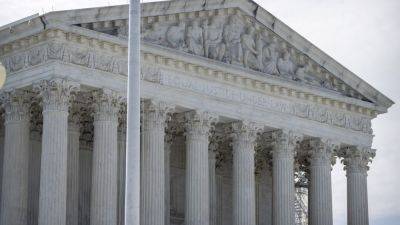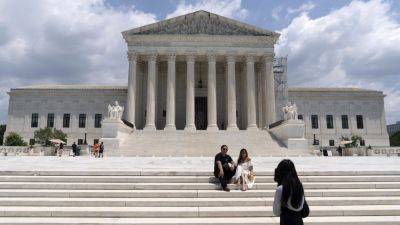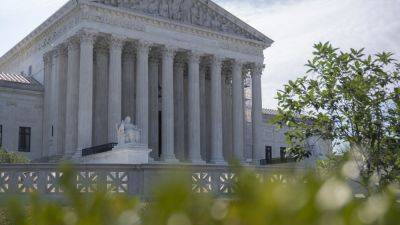Elizabeth Warren Cheers Wealth Tax Prospects Following Supreme Court Decision
WASHINGTON ― The Democratic dream of new taxes on accumulated wealth is still alive thanks to a semi-friendly Supreme Court decision.
Big-money groups that backed a legal challenge to part of a 2017 tax law had hoped the high court would take the opportunity to ban wealth taxes as proposed by Democrats like Sen. Elizabeth Warren (D-Mass.).
“It’s no surprise that when the Supreme Court follows the law that we can actually do the things we need to do to make this country run,” Warren told HuffPost on Thursday.
The ruling in the case, Moore v. United States, which looked at a one-time tax on capital gains in certain foreign investments, did not say whether a wealth tax would be constitutional, leaving the question for another day. Warren and Sen. Ron Wyden (D-Ore.), the Senate Democrats’ point man on tax policy, called it a good outcome.
“It certainly sounds helpful to our position that billionaires should have to pay a fair share of taxes like everybody else,” Wyden said.
“The Supreme Court’s job is not to go beyond the confines of the particular opinion in front of them,” Warren said. “But they certainly backed up from cutting off a wealth tax before it could ever get started.”
Warren has led Democrats in their pursuit of new taxes on the wealth of the super-rich. As it stands, the tax code takes an annual cut of people’s income and only taxes assets when they’re sold for a profit, whereas a wealth tax would target someone’s accumulated assets every year, an idea that some legal scholars have said would be unconstitutional.
The share of total assets owned by the richest 1% of Americans has risen from 20% in 1990 to more than 27% as of this year, according to Federal Reserve data, while the bottom half of households







